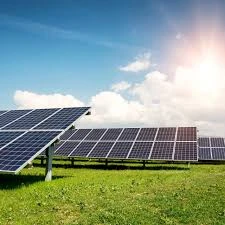Impact of Cloudy Weather on Solar Panel Efficiency and Performance
Solar Panel Efficiency on Cloudy Days
Solar energy has emerged as a promising renewable energy source in the fight against climate change. While the efficiency of solar panels is typically associated with bright, sunny days, many may wonder how effective these systems are during cloudy weather. Understanding the impact of cloud cover on solar panel efficiency is crucial for both consumers and businesses considering solar energy solutions.
The Basics of Solar Panel Functionality
Solar panels function by converting sunlight into electricity through the photovoltaic effect. They are composed of solar cells, usually made from silicon, which absorb photons from sunlight. When these photons hit the solar cells, they knock electrons loose from their atoms, generating an electric current. The efficiency of this process is influenced by several factors, including the intensity of sunlight, angle of incidence, temperature, and the design of the solar panel itself.
Impact of Cloud Cover on Solar Energy Production
Cloudy weather can significantly affect solar energy production. On overcast days, sunlight is diffused as it passes through the clouds, resulting in lower intensity light reaching the solar panels. On average, solar panels can produce about 10% to 25% of their maximum capacity on cloudy days, depending on the density and type of cloud cover. However, this doesn't mean solar energy is ineffective during these times.
It's important to note that while clouds block direct sunlight, they still allow diffused light to reach the solar panels. This diffused light can still be utilized to generate electricity, albeit at a reduced capacity. Furthermore, advancements in solar technology, such as the use of bifacial panels and improved materials, have led to better performance under cloudy conditions.
Comparative Efficiency Cloudy Days vs. Sunny Days
On clear sunny days, solar panels can achieve efficiencies of 80% to 90% of their rated capacity. In contrast, cloudy days typically see efficiencies drop to 10% to 25%. However, these numbers can vary. For instance, lightly overcast skies may allow for greater solar energy collection compared to days with heavy cloud cover. Studies have shown that while energy generation decreases during cloudy weather, solar panels can still be productive.
solar panel efficiency on cloudy day

Additionally, not all cloud cover is created equal. Thin or sparse clouds may allow more sunlight to penetrate than thick, dark clouds. Interestingly, some studies suggest that the benefits of cloud cover can extend beyond mere light diffusion. Clouds can also mitigate the effects of heat, allowing solar panels to operate more efficiently than on extremely hot days.
Technological Innovations Enhancing Performance
To maximize the efficiency of solar panels during less-than-ideal weather conditions, researchers and manufacturers are continuously innovating. Some notable advancements include
1. Bifacial Solar Panels These panels can capture sunlight from both sides, increasing energy production by harnessing reflected light from surfaces below them, such as the ground or roofs.
2. Improved Materials New materials, such as perovskite solar cells, promise greater efficiency and responsiveness to diffused light, making them more effective during cloudy days.
3. Tracking Systems Solar panel tracking systems that adjust the orientation of panels to follow the sun can also improve energy capture, even on partially cloudy days.
Conclusion The Resilience of Solar Energy
In conclusion, while cloudy days present challenges to solar energy production, they do not render solar panels ineffective. The ability of solar panels to generate electricity under these conditions, coupled with ongoing technological advancements, makes solar energy a highly viable and sustainable option. As countries around the world strive for cleaner energy sources, understanding the performance of solar panels in various weather conditions will play a critical role in the future of energy production.
For consumers and businesses, this means that investing in solar energy can be a reliable choice, even in regions known for their cloudy weather. The key lies in selecting the right technology and understanding the potential of solar energy across different conditions. Embracing solar power is not only an environmentally friendly decision but also a smart financial investment that can yield significant benefits over time.
-
String Solar Inverter: The High-Efficiency Solution for Smart Solar EnergyNewsJul.14,2025
-
Revolutionizing Rooftop Energy with the Power of the Micro Solar InverterNewsJul.14,2025
-
Power Independence with Smart Off Grid Solar Inverter SolutionsNewsJul.14,2025
-
On Grid Solar Inverter: Powering the Future with Smart Grid IntegrationNewsJul.14,2025
-
Monocrystalline Solar Panels: High-Efficiency Power for the Future of Clean EnergyNewsJul.14,2025
-
Bifacial Solar Panel: A Smarter Investment for Next-Generation Energy SystemsNewsJul.14,2025







